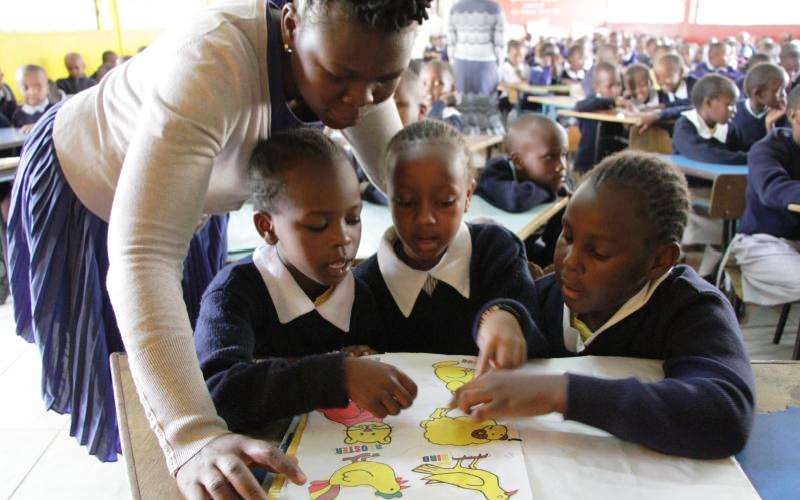×
The Standard e-Paper
Fearless, Trusted News

Teacher Yvonne Ager supervises the Work done by Pupils of Class Three at Busara Primary School in Umoja 2, in Embakasi West Constituency, in Nairobi County during the rehearsals day on Monday. [Phillip Orwa, Standard]
The new Competency Based Curriculum (CBC) will be subjected to a review in 2022 on the fifth year of its implementation, the Ministry of Education said yesterday.